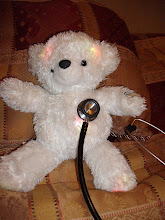Every child needs an appropriate amount of carbohydrates, fat, proteins, minerals and vitamins to grow normally. Food is consumed mainly in three forms: carbohydrates, fat, proteins. Carbohydrates and fat are the main source of energy and protein helps to grow.
Carbohydrates: Food containing carbohydrates include rice, bread, pasta, potatoes, lentils, cereals, beans, sugar, sweets, sugary drinks, jam and so on. Carbohydrates provide energy.
Fat: Foods rich in fat include butter, vegetable oil, cheese, cream, fried foods, meat etc. Fat also provides energy. Everyone understands that eating too much of fat is not good for health. There are 2 types of fat: unsaturated (eg.vegetable oil and fish) and saturated (other animal fat). Unsaturated fat is better for our body.
Proteins: Essential for growth. Milk, beans, cheese, eggs, fish, meat, soya are rich in proteins.
For a child who is growing normally, there is no need to count how many calories (energy) he is consuming each day. But, it may be of interest to some parents to know how much your child should be getting (approximately). Energy and protein requirement varies from child to child and depends on the age, sex, weight and activities of the child. Food consumption also varies every day. Here is a rough guide to show many calories children need at different ages (protein requirement in brackets):
0-6months: 100 kcal/kg body wt/day (2.2gram/ kg body wt/day)
6-12 months: 90cal/kg body wt/day (1.6 gram/kg body wt/day)
Toddlers : 1,300cal (1.1grams/kg body wt/day)
4- 10yrs: 1,800- 2,000 cal (1.0 gram/kg body wt/day)
Adolescents: 2,500-3,000cal (0.9gram/kg body wt/day)
Adults: 2,500cal (0.8grams/kg body wt/day)
In general boys require more calories than girls. Children who are very active will need more calories than the ones with sedentary lifestyle.
Friday, 16 October 2009
Subscribe to:
Post Comments (Atom)

No comments:
Post a Comment